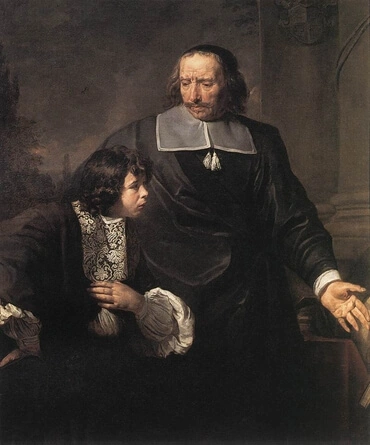1
וישמע יתרו כהן מדין חתן משה את כל־אשר עשה אלהים למשה ולישראל עמו כי־הוציא יהוה את־ישראל ממצרים׃
2
ויקח יתרו חתן משה את־צפרה אשת משה אחר שלוחיה׃
3
ואת שני בניה אשר שם האחד גרשם כי אמר גר הייתי בארץ נכריה׃
4
ושם האחד אליעזר כי־אלהי אבי בעזרי ויצלני מחרב פרעה׃
5
ויבא יתרו חתן משה ובניו ואשתו אל־משה אל־המדבר אשר־הוא חנה שם הר האלהים׃
6
ויאמר אל־משה אני חתנך יתרו בא אליך ואשתך ושני בניה עמה׃
7
ויצא משה לקראת חתנו וישתחו וישק־לו וישאלו איש־לרעהו לשלום ויבאו האהלה׃
8
ויספר משה לחתנו את כל־אשר עשה יהוה לפרעה ולמצרים על אודת ישראל את כל־התלאה אשר מצאתם בדרך ויצלם יהוה׃
9
ויחד יתרו על כל־הטובה אשר־עשה יהוה לישראל אשר הצילו מיד מצרים׃
10
ויאמר יתרו ברוך יהוה אשר הציל אתכם מיד מצרים ומיד פרעה אשר הציל את־העם מתחת יד־מצרים׃
11
עתה ידעתי כי־גדול יהוה מכל־האלהים כי בדבר אשר זדו עליהם׃
12
ויקח יתרו חתן משה עלה וזבחים לאלהים ויבא אהרן וכל זקני ישראל לאכל־לחם עם־חתן משה לפני האלהים׃
13
ויהי ממחרת וישב משה לשפט את־העם ויעמד העם על־משה מן־הבקר עד־הערב׃
14
וירא חתן משה את כל־אשר־הוא עשה לעם ויאמר מה־הדבר הזה אשר אתה עשה לעם מדוע אתה יושב לבדך וכל־העם נצב עליך מן־בקר עד־ערב׃
15
ויאמר משה לחתנו כי־יבא אלי העם לדרש אלהים׃
16
כי־יהיה להם דבר בא אלי ושפטתי בין איש ובין רעהו והודעתי את־חקי האלהים ואת־תורתיו׃
17
ויאמר חתן משה אליו לא־טוב הדבר אשר אתה עשה׃
18
נבל תבל גם־אתה גם־העם הזה אשר עמך כי־כבד ממך הדבר לא־תוכל עשהו לבדך׃
19
עתה שמע בקלי איעצך ויהי אלהים עמך היה אתה לעם מול האלהים והבאת אתה את־הדברים אל־האלהים׃
20
והזהרתה אתהם את־החקים ואת־התורת והודעת להם את־הדרך ילכו בה ואת־המעשה אשר יעשון׃
21
ואתה תחזה מכל־העם אנשי־חיל יראי אלהים אנשי אמת שנאי בצע ושמת עלהם שרי אלפים שרי מאות שרי חמשים ושרי עשרת׃
22
ושפטו את־העם בכל־עת והיה כל־הדבר הגדל יביאו אליך וכל־הדבר הקטן ישפטו־הם והקל מעליך ונשאו אתך׃
23
אם את־הדבר הזה תעשה וצוך אלהים ויכלת עמד וגם כל־העם הזה על־מקמו יבא בשלום׃
24
וישמע משה לקול חתנו ויעש כל אשר אמר׃
25
ויבחר משה אנשי־חיל מכל־ישראל ויתן אתם ראשים על־העם שרי אלפים שרי מאות שרי חמשים ושרי עשרת׃
26
ושפטו את־העם בכל־עת את־הדבר הקשה יביאון אל־משה וכל־הדבר הקטן ישפוטו הם׃
27
וישלח משה את־חתנו וילך לו אל־ארצו׃ ף







